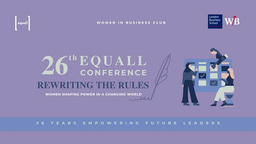This summer, I joined Shared Planet as a research intern for my first-year Laidlaw Leadership-in-Action project. Shared Planet is a stakeholder engagement consultancy that operates globally to support its clients in finding policies and solutions for a better future for both people and the planet. My responsibility was to support the team in various projects related to the environment, food system, social justice, etc.
Although Shared Planet is a small company – there were only six employees when I joined, I was amazed by how diversified and influential their clients are. They work with private corporations, international organisations, and NGOs, such as Mars, World Economic Forum, and WWF. I was fortunate to be given the opportunity to contribute to the work of many world-leading organisations. I gained a lot of insights into leadership while improving my skills.
The account that I spent most of my time on was the World Wide Fund for Nature UK. It is a project that develops an advocacy strategy that engages governments in creating a Nature Positive Economy Roadmap (NPER). A nature-positive economy refers to an economy that is both resilient to and regenerative of nature and based on sustainability and circularity principles. One leadership lesson I learned from our client is that leaders should be innovative in solutions, specific in implementation and optimistic in achieving the aspirations so that their followers are clear with the objectives and constantly align with the agenda.
When I was first assigned to map out funders for the project, I struggled to collect a massive amount of valuable and effective information quickly, especially when other tasks were added to my plate. However, after my active communication with my supervisors and colleagues for support and feedback, my mapping and multitasking skills have improved remarkably. From this experience, I learned that a good leader should be highly adaptive to new environments, familiarise with the work pace and expected quality quickly, and always take constructive advice as they would significantly help you improve. Moreover, it is crucial to multitask efficiently and plan for deadlines so you won’t wear out under constant pressure.
Regarding the impact of my project, I have directly facilitated the earlier stage of the entire WWF project and supported Shared Planet with a massive collation of potential funders that they could aim to approach for funding to better put the NPER in place. In the long term, the project would undoubtedly be a meaningful and influential attempt to sustain a green future for ALL in a global free market economy when the WWF-UK initiated the engagement of countries in realising the NPER. Whilst being a tremendous benefit to our society and planet, the project would also help Shared Planet to achieve its mission -- radically re-orienting human society to prioritise living in harmony with nature.
Lastly, I would like to share a few lessons I learned from working in a new and personally challenging environment. When I first started my LiA project, I set three SMART goals for the upcoming six weeks. They became instrumental in helping me keep track of what I wanted to improve and achieve as I was asked to facilitate many different accounts and got busy. Aside from SMART goals that can guide me during this exciting experience, seeking help is vital. It may sound cliché, but never be shy to ask questions. When you enter a new workspace and are assigned something you have never done, you might be very anxious that you might fail people’s expectations, but remember – you are here to learn. Asking for clarifications can support you in better completing the work and mastering essential skills, such as time management, mapping, and communication. Ultimately, I learned that I should not stress out when I could not achieve the set goals instantly as some of them, especially building networks, would take time and as long as I keep trying, the results would usually be desirable.
Overall, I really enjoyed my LiA experience, and I am particularly glad that the company I worked for shared the same values as I have in making the world a better place. Thanks to this LiA experience, I have become more determined about what I would like to pursue in my future career!



Please sign in
If you are a registered user on Laidlaw Scholars Network, please sign in